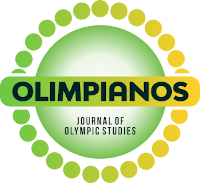An Olympic adventure: New madalities, new challenges
DOI:
https://doi.org/10.30937/2526-6314.v1n3.id30Keywords:
Olympics, Adventure, OlimpismAbstract
In 1894, even before the first edition of the Olympic Games of the modern era, Baron Pierre de Coubertin already demonstrated that Olympism and adventure could go together from the beginning, as we can see in the attempts to carry out "best hunting" "Best climbing" and an award in the "aviation" category. It took about a century for the adventure sports to have their place in the Olympic program, starting with the timid isolated appearance of slalom canoeing in 1972 and culminating now with the emergence of climbing, surfing and skateboarding in the games of Tokio in 2020. If on the one hand the understanding of the socio-cultural context that underlies and legitimizes the reframing of the Olympic program in this direction becomes fundamental, on the other hand, we have to ask ourselves if, due to the peculiarities of these modalities, if they are willing to cooperate with the intentions of the IOC. During the celebration of the IX Brazilian Congress of Adventure Activity in 2016, the speakers were highly debated to what extent it would be worth the "sportification" of these sports, which would make them lose their essence to the detriment of the traditional manifestation of the sport. In fact, none of the 64 papers received and presented in posters or oral communications were devoted to studying this subject, even though it was the central theme of the congress. Coincidence or lack of interest? Lack of interest or irrelevance? Irrelevance or incompatibility? We still do not have the answer to these questions, but it seems to me that within the IOC's greater challenge of rescuing high audience levels and making the Games more attractive to young audiences, there is still a much greater challenge that needs to be structures that can alter the way the sport phenomenon itself is seen.
Downloads
Downloads
Published
Issue
Section
License
The authors authorize others to copy and redistribute the material in any medium or format. Remix, transform, and create from the material. You may not use the material for commercial purposes.






